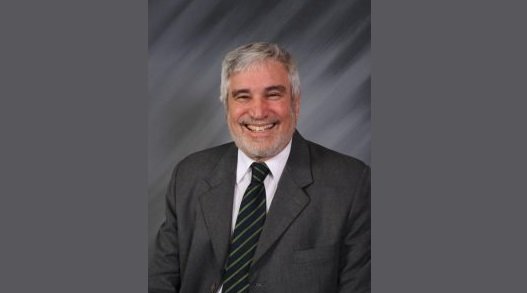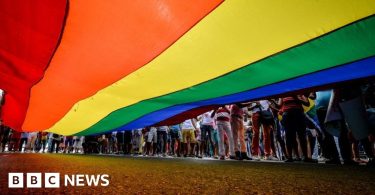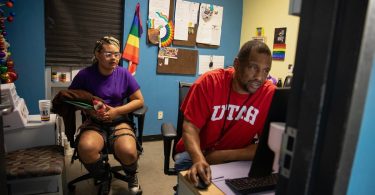The travel and tourism industry depends on visitors being able to travel freely from one location to another. When a health crisis occurs, especially one for which currently there is no vaccine, visitors naturally become afraid. In the case of the Coronavirus, not only has the Chinese government now taken action but much of the world has also acted.
With the first reported death outside of China, once again the world of tourism is facing another health crisis. The World Health Organization has declared the Coronavirus to be a worldwide crisis. Governments have prepared quarantine centers and closed borders. Airlines and ships have canceled flights or calls at international ports and medical personnel is scrabbling to find new vaccines before the coronavirus spreads and possibly mutates.
Nations around the world have restricted or forbidden their national carriers to fly to China. Other nations have closed their borders or demand health records before allowing foreigners to enter. Depending on how the virus mutates, spreads, the consequences of these cancellations might last for years. The results are not only a loss of money but also prestige and reputation. Many parts of China already suffer from a perceived lack of hygiene and the spread of this virus has made a bad situation appear even worse.
Additionally, we live in an age of twenty-four, seven-day-a-week worldwide news. The result is that what happens in one location around the world is almost instantaneously known throughout the entire world.
Media pressure not only means that individuals will shy away from such locations but also that local governments throughout the world feel obliged to take added precautions, so as not to suffer reputational or political consequences. From the perspective of tourism, a health crisis quickly becomes a tourism crisis.
As of the writing of this article, public health officials and scientists are unclear as to the science behind the Coronavirus. What medical personnel do know is that this virus is related to the S.A.R.S. virus, a virus from the early part of the twenty-first century that had devastating effects on tourism in such places as Hong Kong and Toronto, Canada.
Concerning the Coronavirus, we know that it is spread from one human to another. What health officials still do not know is if those carrying the disease are aware that they are carriers or not. The fact that large numbers of infected people might be carriers without knowing creates whole new problems for both the medical and for the tourism industry.
The fact that we still do not have a clear understanding as to how the Coronavirus spreads or mutates can become the basis for both rational and irrational behavior.
The tourism
industry may feel both localized and large scale travel reluctance by large
numbers of people. This reluctance to
travel could result in some, or all, of the following:
- Lower numbers of people flying,
- Decrease lodging occupancy resulting not only in the loss of income but also jobs,
- Decreased taxes being paid with governments having to find new revue streams or be faced with the cutting of social services,
- Loss of reputations and confidence on the part of the traveling public.
The tourism and travel industry is not helpless and there are a number of responsible ways that the industry can confront this newest challenge. Tourism professionals are reminded that they need to review and remember some of the basics when dealing with a tourism crisis. Among these are:
-Be
ready for any changes. To be ready is
to have good passenger and employ screening at points of international entry and
departure, and locations in which people come in close contact with one
another, Then
-Develop the best responses possible. To accomplish this task, tourism officials
have to be up-to-date on the facts, highlight preventative actions being
taken within their part of the tourism industry to protect travelers.
-Create
as many alliances as possible between the government sector, medical sector and
tourism organizations. Create ways that you work with the media to get real
facts into the public and to prevent unnecessary panics.
Tourism professionals
cannot afford to be unaware of the crisis changeable aspects and as such tourism security specialists need to
know that:
-tourism is highly vulnerable to
panic situation. The
days after September 11, 2001 ought to have taught the tourism industry that
for most people travel is a leisure purchase based on want rather than
need. If travelers become afraid they may simply cancel their trips. In
such cases, there may be massive layoffs of tourism workers whose jobs suddenly
disappear.
-the importance of caring for sick
employees and their families.
The people staffing the tourism industry are also human. That means that their
families and they are also susceptible to illnesses. Should large numbers of
staff (or their families) become sick, hotels and restaurants may have to close
simply due to manpower shortages. Tourism industry people need to be developing
plans on how they will maintain their industry while suffering from manpower
shortages.
– the importance of having a plan to
take care of visitors who fall ill may not know how to contact local medical
authorities or even speak the language of the local doctors. Another problem to be considered is
how the tourism industry will aid people who fall sick while on vacation. Medical notices will need to be distributed in
multiple languages people will need ways to communicate to loved-ones and to
describe symptoms to medical personnel in their own language.
-preparation to fight against a
pandemic not only from the medical perspective but also from the
marketing/information perspective. Because the public may well
panic it is important that the tourism industry be prepared to offer concrete
and credible information. This information should be given to the public almost
immediately. Every tourism office should have an information plan ready should
a pandemic occur in its area. Develop creative websites so that people
can gain information any time of the day and without regards to where they may
be located.
-tourism personnel must be prepared
to counter negative publicity with an action program. For example in areas that have been impacted
by a disease make sure to advise travelers to stay current with their
vaccinations and create medical information sheets. It is essential that the public know where to
go for information and what is real versus what is rumor. For travelers who may not be up-to-date with
current shots, offer lists of doctors and clinics willing to accept traveler’s
insurance.
-medical kits at hotels and other
places of lodging must always be up-to-date. Make sure that their employees use anti bacterial hand wipes and
encourage hotels to provide these for travelers.
-Preparation to work with travel
insurance companies. In case of a pandemic, travelers may not
receive value for money and may desire to either cancel a trip or cut it short.
The best way to maintain good will is by working with such organizations as the
United States Travel Industry Association (in Canada it is called Travel and
Health Industry Association of Canada). Develop travel health programs with
these organizations so that visitors feel financially protected.
-working with the media. A pandemic is like any other tourism crisis
and should be treated as such.
Prepare for it before it strikes, if it should occur set your action plan in
place and make sure that you work with the media, and finally have a recovery
plan set so that once the crisis has abated you can begin a financial recovery
program.
Listed below
are a number of additional things that tourism and travel professionals will
need to consider. It must be emphasized
that because this virus is dangerous and rapidly changing and/or spreading,
tourism professionals should be in constant contact with local medical and
public health officials.
-Seek daily medical updates. There is no place immune from this disease and it might only take
one person who has been to an infected area or has been in close contact with
an infected person to bring the Coronavirus to your locale. Vigilance is
necessary and work closely with local public health officials.
-Be
aware of the news. Governments
are reacting quickly and decisively to quarantined problems and stop them
before potential problems become realities.
That means that if you are in travel or tourism you need to have
alternative plans in case borders are closed, flights are cancelled, or new
illnesses develop.
-Do
not panic but be vigilant. Most people
will not be infected by the coronavirus, but without good data panic tends to
set in. Statements such as: “I think”,
“I believe” or “I feel that…” are not helpful.
What counts is not what we think but what facts we know.
-Know
and have cancellation policies in place. This might be especially important for tourism group organizers and
travel agents. Make sure that you share
this information with clients and have full refund policies in place should
they be needed.
-Cleanliness and good sanitation are essential. That means that sheets need to be changed regularly, public devices
need to be disinfected on a regular basis, and personnel who feel ill should be
encouraged to stay home. The tourism and
travel industry needs to reconsider its policies vis-à-vis such issues as:
- Lack of public sanitation
- Recycled air on airplanes
- Issues of blankets both at hotels and on airplanes
- Additional employee washing of hands
- Public restroom cleanliness
- Personnel in direct contact with the public such as wait-staffs, hotel cleaning services, and front desk personnel need to be checked to assure the public that another colleague or guest has not inadvertently infected them.
-Check
ventilation systems and make sure that the air being breathed is a pure as
possible. Good air
quality is essential and that means that air conditioner and heater filters
need to be checked, airlines need to increase outside airflows, and windows
should be opened and sunlight should be able to enter into buildings whenever
and wherever possible.
-Understand the impact of time. In a national or international
crisis, the media or our members are likely to know about it before us or at
least as soon as we do.
Dr. Peter Tarlow is one of the most recognized safety and security experts for the global travel and tourism industry.
eTurboNews readers are invited to discuss more directly with Dr. Tarlow on the next SaferTourism webinar on Thursday:
More information on Dr. Peter Tarlow on safertourism.com






